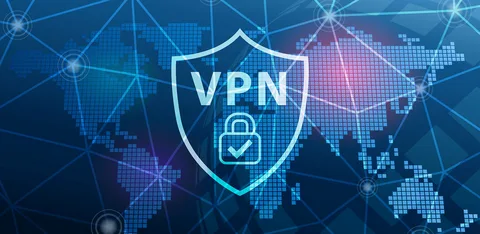
The Benefits of Using ControlledCare in Managing Hypertension and Other Chronic Conditions
Introduction: The Challenge of Managing Chronic Conditions
Managing chronic conditions such as hypertension, diabetes, and heart disease is a significant challenge in today’s healthcare environment. Effective management is crucial to preventing complications, reducing hospitalizations, and improving patients’ quality of life. One innovative solution that enhances chronic care management is the implementation of Wireless Nurse Call System for Hospitals. ControlledCare provides comprehensive tools that empower healthcare providers and patients alike to effectively manage these conditions. This article explores the benefits of using ControlledCare in managing hypertension and other chronic ailments, highlighting how its integrated systems can transform patient care.
Understanding Hypertension and Its Management
Hypertension, or high blood pressure, affects approximately 1 in 3 adults in the United States. It is a major risk factor for heart disease, stroke, and kidney failure. Effective management of hypertension requires a multifaceted approach, including medication adherence, lifestyle modifications, and regular monitoring of blood pressure levels.
Key Challenges in Managing Hypertension
Several challenges complicate the management of hypertension:
- Medication Adherence: Patients often struggle to adhere to prescribed medication regimens, which can lead to poorly controlled blood pressure and increased risk of complications.
- Lack of Monitoring: Regular monitoring of blood pressure is essential for effective management. Many patients do not have access to consistent monitoring tools, making it difficult to track their progress.
- Communication Barriers: Traditional communication methods may not effectively address patients’ questions or provide timely updates on their condition, leading to misunderstandings and potential health risks.
The Benefits of Using ControlledCare
1. Enhanced Communication with Nurse Call Systems for Hospitals
The integration of Nurse Call Systems for Hospitals into chronic care management significantly enhances communication between patients and healthcare providers. This system allows for:
- Instant Access to Healthcare Providers: Patients can easily reach their healthcare team to report symptoms, ask questions, or seek advice. This immediate access fosters a supportive environment and encourages patient engagement.
- Collaboration Among Care Team Members: The system facilitates seamless communication among healthcare providers, ensuring that everyone involved in a patient’s care is informed and can contribute effectively.
2. Remote Monitoring Solutions
ControlledCare offers innovative remote monitoring tools that empower patients to track their health metrics, including blood pressure, in real time. Key features include:
- Wearable Devices: Patients can use wearable technologies to monitor their blood pressure continuously. This data is transmitted to healthcare providers, enabling them to make informed decisions regarding treatment.
- Automated Alerts: The system can generate alerts when a patient’s blood pressure readings fall outside of acceptable ranges, prompting timely interventions from the care team.
3. Patient Education and Empowerment
Effective management of hypertension requires active patient participation. ControlledCare emphasizes patient education through:
- Comprehensive Resources: Providing educational materials about hypertension, its risks, and management strategies helps patients understand their condition and the importance of adherence.
- Empowering Patients: The Nurse Call Systems for Hospitals facilitate ongoing communication, allowing patients to ask questions and express concerns directly to their healthcare team, thus fostering a sense of ownership over their health.
4. Data-Driven Insights
ControlledCare utilizes data analytics to provide valuable insights into patient health trends. This includes:
- Monitoring Patterns: By analyzing data collected from remote monitoring and patient interactions, healthcare providers can identify patterns that may indicate worsening conditions or complications.
- Personalized Treatment Plans: Healthcare teams can use this data to create tailored treatment plans that address the unique needs of each hypertension patient, improving adherence and outcomes.
Best Practices for Managing Hypertension with ControlledCare
1. Foster Open Communication
Encouraging open lines of communication between patients and the care team is vital for successful hypertension management. Patients should be educated on how to utilize Nurse Call Systems for Hospitals to report concerns or ask questions about their treatment.
2. Implement Regular Monitoring
Regular monitoring is essential in managing hypertension effectively. Healthcare providers should schedule routine check-ins to assess the patient’s progress and make necessary adjustments to treatment plans.
3. Promote Lifestyle Modifications
Educating patients on the importance of lifestyle changes—such as diet, exercise, and stress management—can significantly impact hypertension management. ControlledCare offers resources that support these modifications to promote better health outcomes.
Case Studies: Success Stories with ControlledCare
Case Study 1: Hypertension Management in Primary Care
A primary care clinic implemented ControlledCare’s solutions for managing hypertension among its patients. By utilizing Nurse Call Systems for Hospitals, they enabled patients to report blood pressure readings and receive immediate feedback from their healthcare team. This proactive approach resulted in improved adherence to treatment plans and a significant reduction in hospital visits due to hypertension-related complications.
Case Study 2: Remote Monitoring for Home Health Patients
Another healthcare provider integrated ControlledCare’s remote monitoring tools for home health patients with hypertension. The Nurse Call Systems for Hospitals facilitated timely communication regarding medication adjustments and lifestyle recommendations, leading to enhanced patient outcomes and satisfaction.
Conclusion: The Future of Chronic Care Management with ControlledCare
As the healthcare landscape continues to evolve, the integration of ControlledCare solutions, particularly Nurse Call Systems for Hospitals, plays a vital role in managing hypertension and other chronic conditions effectively. By enhancing communication, providing remote monitoring tools, and leveraging data-driven insights, ControlledCare is committed to improving patient outcomes. The importance of these technologies cannot be overstated, as they enable healthcare teams to work collaboratively and ensure that patients receive the comprehensive support they need. Embracing these innovations will be essential for advancing chronic care and improving the quality of life for individuals with hypertension and other chronic conditions.





